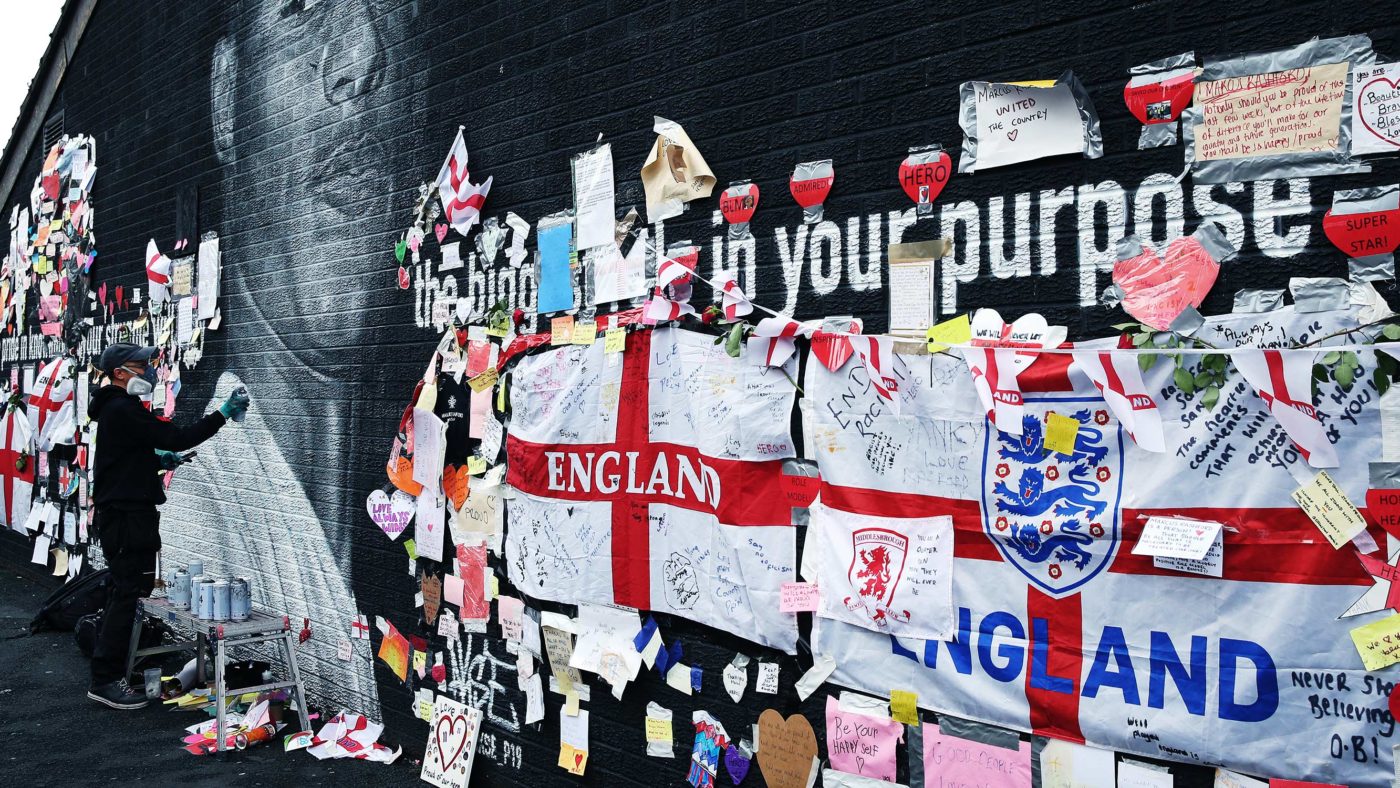Hope gave way to heartbreak on Sunday night, as England’s cohesive and talented crop of players just fell short in their Euro 2020 final against Italy. Marcus Rashford, Jadon Sancho, and Bukayo Saka – aged 23, 21, and 19 respectively – showed exceptional courage but did not net their penalties.
Disgracefully, all three youngsters faced a torrent of racial abuse on social media after the match. While some of this racist bile has been spewed by England ‘fans’, there are suspicions – mentioned by England boss Gareth Southgate himself – that a significant portion of it is coming from overseas troll accounts. The possibility of hostile state activity cannot be ruled out here – after all, revisionist and authoritarian regimes have been looking to exploit social fault-lines in Western societies for some time.
Unsurprisingly, chattering-class Guardianistas and metropolitan political elitists have opportunistically sought to amplify a hardcore fringe of racist English bigots and depict them as representative of mainstream England. This is not only grossly unfair, but also threatens to undermine the great strides we have made in terms of national belonging.
For all its flaws, England is one of the most tolerant, anti-discrimination, pro-equality nations on Earth. A 2019 study by British Future found that nine in ten people in England believed that race is no longer an integral part of English identity – with only 12% expressing the view that being white is important to Englishness. Meanwhile, a comfortable majority of people – seven in ten – frame English identity in civic terms, such as making positive contributions to society and paying taxes towards public services and national security. Placing racial identity and ancestral origin at the heart of English identity is now an outlying view.
While it is understandable for players to be upset over the racial abuse suffered by their team-mates, England and Aston Villa defender Tyrone Mings accusing Home Secretary Priti Patel of “stoking the fire” of racism felt wide of the mark. For one thing, the idea that England’s hardcore racists are taking their cues from a woman of Indian origin is hard to credit, as is the insinuation that expressing reservations over ‘taking the knee’ is incompatible with anti-racism. It is perfectly possible for someone to be both an anti-racist and a BLM-sceptic. It is certainly worth noting that prominent supporters of the BLM movement have been guilty of indulging in forms of racist abuse towards ethnic minority people who hold a ‘dissenting’ view on racial and ethnic disparities.
That said, it is also the case that the Government has been asleep at the wheel when it comes to countering racist abuse. The Sewell report, published back in March by the Commission on Race & Ethnic Disparities (CRED), clearly stated that making it more difficult for people to indulge in online racist abuse should be a “public policy priority”. Polling by British Future for CRED found that black people were most likely to be subjected to racial abuse on social media – as Rashford, Sancho, and Saka know only too well. It is also worth noting that this government has its largest parliamentary majority since 1987 – it has the power and the political capital to introduce new laws which include stronger penalties and sanctions for those found guilty of racially motivated offences.
It is time for the Government to blend old-fashioned conservatism and modern anti-racism by encouraging stricter verification processes surrounding the opening and maintenance of a social media account, and introducing tougher punishments for racially driven violence, intimidation, and abuse. But this needs to be complemented with a long-term strategy for strengthening grassroots community relations and establishing an inclusive patriotism that binds England’s people together through shared values and common purpose.
A wave of solidarity swept the nation during our youthful, inspiring team’s journey to the Euro 2020 final. We must make most of that togetherness to build a more cohesive and harmonious England that people of different backgrounds can take pride in and belong to.
Click here to subscribe to our daily briefing – the best pieces from CapX and across the web.
CapX depends on the generosity of its readers. If you value what we do, please consider making a donation.


